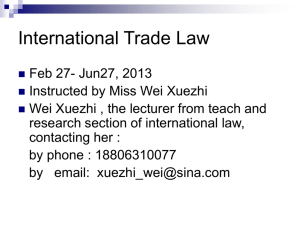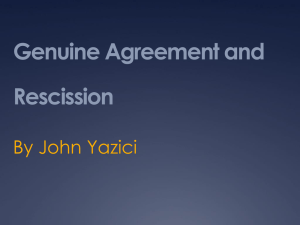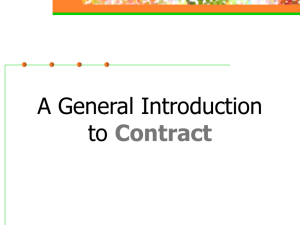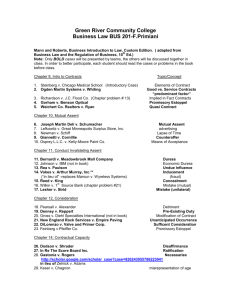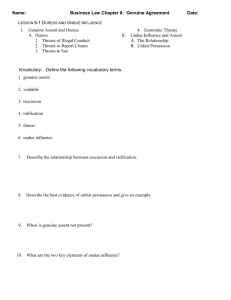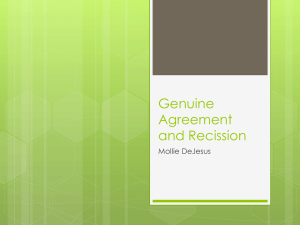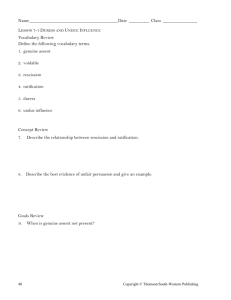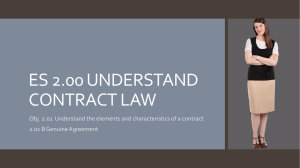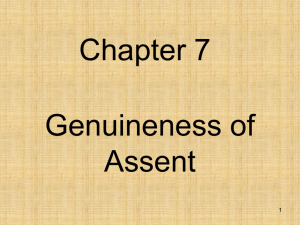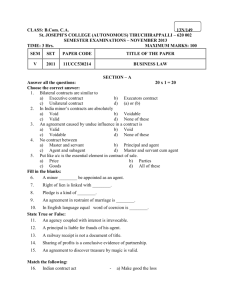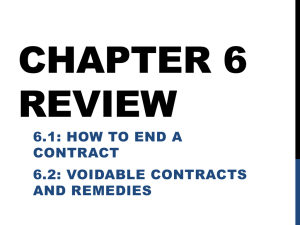Genuine Assent in Contract Law: Duress & Undue Influence
advertisement
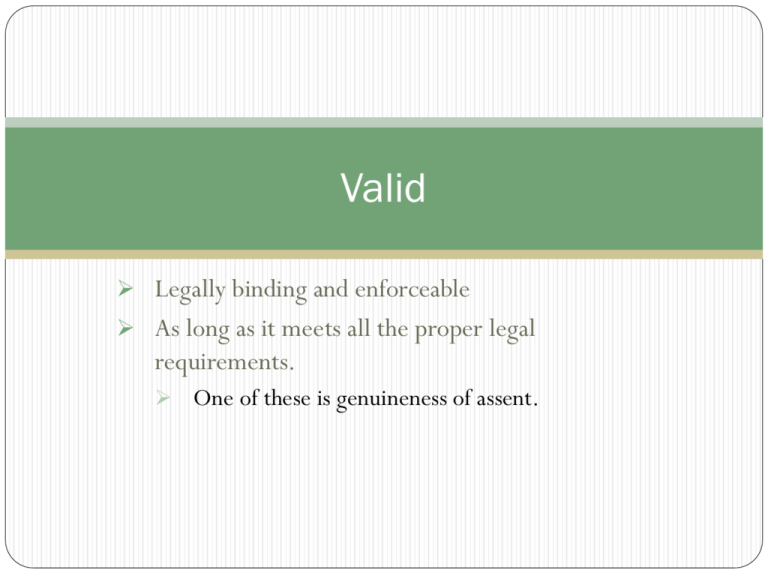
Valid Legally binding and enforceable As long as it meets all the proper legal requirements. One of these is genuineness of assent. Genuine assent True and complete agreement Show to be lacking in court Voidable Without genuine assent a contract is typically voidable. If the injured party desires, that party can cancel or avoid the contractual obligation. Rescission The party has the legal right to get back what has already been put into the contract. Ratification Is conduct that confirms an intent to be bound by the contract. Grounds for an avoidance due to lack of genuine assent include: Duress Undue Influence Mistake Misrepresentation Fraud Duress Only occurs when one party uses an improper threat or act to obtain an expression of agreement. The resulting contract is voidable. Much of the law of duress focuses on the nature of the threat. Threats of Illegal or Tortious Conduct The threat to engage in illegal or tortious conduct, such as a crime or tort, to win agreement is always duress. Threats to Report Crimes If you observe a crime, you have a duty to report it to the proper authorities. Threats To Sue The law encourages parties to settle conflicts without a suit. Economic Threats Often when parties are bound by a valid contract, they will seek to modify it. Parties then are tempted to use the economic power they have over one another to negotiate a favorable modification or settlement. Undue Influence Occurs when the dominating party to a confidential relationship exerts irresistible pressure on the dominated party to enter into a contract that benefits the former.
